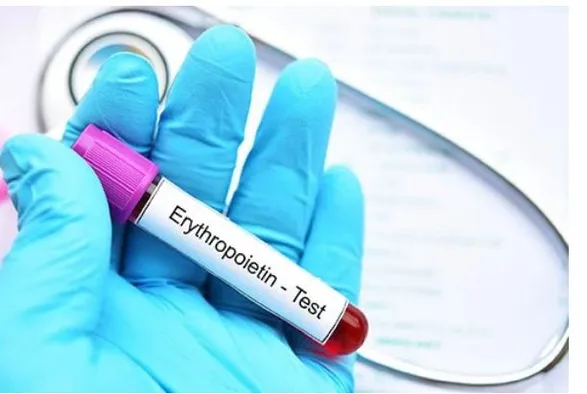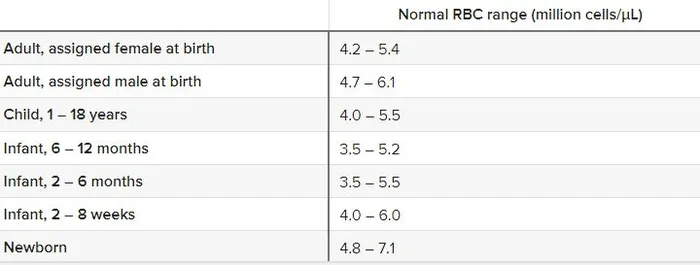A red blood cell (RBC) count measures the number of red blood cells, also known as erythrocytes, in your blood. Red blood cells carry oxygen from your lungs to every cell in your body. An RBC count that is higher or lower than normal is often the first sign of an illness.
What is the need for an RBC blood test?
A red blood cell (RBC) count is almost always part of a complete blood count, a group of tests that measure many different parts and features of your blood. The RBC measurement is used to help diagnose red blood cell disorders, such as anemia, a condition in which your body does not make enough healthy red blood cells.

Symptoms of an abnormal count :
If your RBC count is too high or too low, you could experience symptoms and complications.
If you have a low RBC count, symptoms could include:
- fatigue
- shortness of breath
- dizziness, weakness
- lightheadedness, particularly when you change positions quickly
- increased heart rate
- headaches
- pale skin
If you have a high RBC count, you could experience symptoms such as:
- fatigue
- shortness of breath
- joint pain
- tenderness in your palms
- itching skin
- sleep disturbance
What is the normal range for an RBC count?
RBC ranges are measured in terms of cells per microliter (µL). Normal ranges for RBC differ based on age and sex assigned at birth.

These ranges may vary depending on the laboratory or doctor. Ranges may also differ for those who are pregnant.
What does a lower than normal RBC count mean?
If your number of RBCs is lower than normal, you have anemia. This can be caused by a decrease in RBC production or by the destruction or loss of RBCs. There are many possible causes of anemia.
What does a higher than normal RBC count mean?
If your RBC count is higher than normal, you have erythrocytosis. This causes your blood to be thicker than normal and can increase your risk of blood clots.
What if I have abnormal results?
Your doctor will discuss any abnormal results with you. Depending on the results, they may need to order additional tests.
These can include blood smears, where a film of your blood is examined under a microscope. Blood smears can help detect abnormalities in the blood cells (such as sickle cell anemia), white blood cell disorders such as leukemia, and blood-borne parasites like malaria.
A bone marrow biopsy can show how the different cells of your blood are made within your bone marrow. Diagnostic tests, such as ultrasounds or electrocardiograms, can look for conditions affecting the kidneys or heart.

Why the Test is Performed?
The test can help diagnose different kinds of anemia (low number of RBCs) and other conditions affecting red blood cells.
Other conditions that may require an RBC count are:
- A disease that damages kidney blood vessels (Alport syndrome)
- Disorder in which red blood cells break down earlier than normal
- Bone marrow disorder in which the marrow is replaced by scar tissue
How do I get ready for this test?
Your healthcare provider may suggest that you not:
- Exercise heavily
- Be stressed
- Become dehydrated
- Drink alcohol
- Take certain medicines
Tell your provider about all medicines, herbs, vitamins, and supplements you are taking. This includes medicines that don’t need a prescription and any illegal drugs you may use.

How is a high red blood cell count treated?
If a medical condition is causing a high red blood cell count, your doctor may recommend a procedure or medication to lower it.
In a procedure called phlebotomy, a health professional inserts a needle into your vein and drains blood through a tube into a bag or container. You might need to have this procedure on a repeated basis until your red blood cell level is close to normal.
If you are diagnosed with the bone marrow disease polycythemia vera, your doctor may also prescribe a medicine called hydroxyurea to slow your body’s production of red blood cells.

